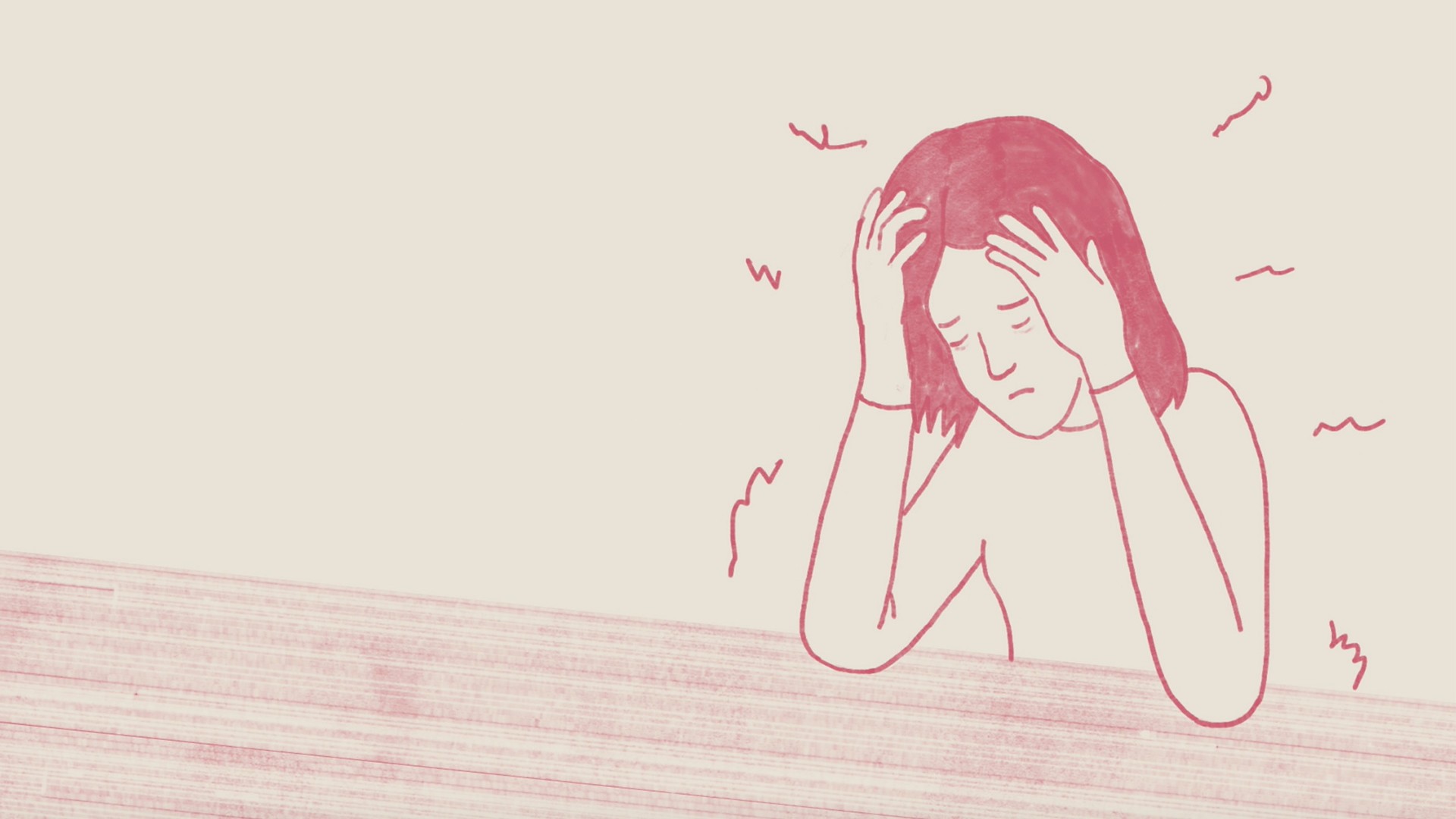martin-dm / Getty Images
On a flight from Nashville to Detroit, Melissa Pummill, a semi-retired hospital registrar, white knuckled it through violent turbulence. The overhead baggage compartments were slamming, and her row mate, a young Japanese man, who was returning home and spoke no English, clung to her arm for dear life—which is ironic because Pummill has a severe phobia of flying. She spent the flight comforting him, but on the inside, she was screaming. The plane landed safely, and though 18 years have passed, Pummill, now 65—who has struggled with a fear of flying all her life—still hasn't stepped foot on another plane.Pummill's fear isn't really that a plane will fall out of the sky—though that clearly went through her mind on her last flight. It's claustrophobia. “There's just no place to go,” she says. For nervous flyers, their fears—things like, being trapped, having no control, or of heights—are compounded by the constant stress related to managing their emotions while in public. “You have to maintain this persona that, you know, 'I'm an adult, I got this,' when inside, you're just screaming. It is hard to maintain your composure,” Pummill tells me.In a recent Chapman University survey on American fears, 9.5 percent of people reported being “afraid” or “very afraid” of flying. Anxious flyers are more common than those with a serious phobia. Those with with low-level anxiety about flying are usually able to cope with their fears and talk themselves down. But for those with aerophobia, their fear is more than manageable anxiety; it's debilitating.“Specific phobias are very interfering for the person—the level of fear that that individual is experiencing is going to be pretty significant, like produce panic attacks and those sorts of things,” says Todd Farchione, a researcher and associate professor at Boston University and the director of the Intensive Treatment Program for Panic Disorder and Specific Phobias. “So, for those people they're going to be in a situation where treatment may be necessary for them to even get on the plane.”
More from Tonic:
Farchione says that the gold standard approach for phobias is exposure therapy, where a person repeatedly exposes themselves to a certain phobia in order to desensitize themselves to their fear. That treatment, Farchione says, can be effective in upward of 80 percent of people.Treatment for fear of flying is trickier than for other phobias because an individual doesn't often have ample opportunity to engage in exposures repeatedly. Farchione says that time commitment plus the cost of multiple flights in close succession is prohibitive for most people.Pummill is in a unique position as a candidate for exposure therapy for her flying phobia because her son is a commercial airline pilot, able to offer her free tickets to anywhere in the world. And while she knows that avoidance isn't recovery, she maintains, with a chuckle, that her treatment of choice is Amtrak. She's been traveling by train for almost two decades and enjoys the freedom to move about, her own space on the train, and the friendships she makes while traveling by rail.People with flight phobia are often way too hung up on managing their emotions to engage, socially, while on a flight but flight attendants are actually trained to support anxious flyers. Taylor Garland, spokeswoman for the Association of Flight Attendants, says that with minimum staffing, it can be difficult for flight attendants to spend time with individual passengers, but she suggests people with phobias advise a flight attendant when they board. “The more info the flight crew has, the better they are able to address the needs of passengers.”Farchione says that people with flight phobia often imagine that other people are not going to be understanding or that the flight crew might land the plane and throw them off if they have a panic attack or struggle to manage their emotions. But, he says, “the reality is, they come over and they're just like, 'is there anything I can do for you?'”Lindsay Hoover, 31, a flight attendant based out of Charlotte, North Carolina, recalls a recent time that a woman on a flight began pacing during a panic attack right after they shut the boarding doors. The flight staff was able to talk her down, while taxiing, and seat her next to a flight attendant for take-off, where she was able to calm down.Hoover says that most people don't say anything to her about their fears, but she wishes that they would. “I think most people might feel an embarrassment about it or like they don’t think it’s worth bringing up,” she says. But, when Hoover knows a person has a fear of flying, she will check in on them more frequently, especially during periods of turbulence.Farchione says that, generally speaking, it's the anticipatory anxiety that is often the worst for people. “It's the take-off, it's the sitting there waiting for it to take off. Oftentimes when people are in the air, they actually feel much better,” he says.He adds that treatments—which could involve things like talk therapy, intensive exposure-based therapy, self-help programs, or even developing programs like virtual reality—are the only way to truly overcome a phobia. He does, however, offer some tips that fearful flyers can use to cope with their fears.First, he says to try and assess the danger in a way that is accurate. “People will describe it as feeling as though they were going to their death. So, they would talk to people about it as though they were going to their death. Well, we believe what we tell ourselves.” Farchione says that some positive self talk can go a long way. Something like, “This is going to be hard for me, this is something I'm afraid of—it doesn't mean it's dangerous—but, I will be able to manage this.”It also helps to approach your fear with a sense of openness. “I sort of have this roller coaster analogy—there's always that feeling, when you're going up as the roller coaster's ascending, where it's clicking and you hear it and you're like, 'I'm not sure I'm fully on board with this, is there some way to stop this and get off?' But as soon as we hit the top of that, if we just sort of say, 'well, I'm in for the ride,' we're going to enjoy that next 30 seconds or minute and a half, or whatever it might be, much better.”Finally—as cliche as it sounds—Farchione says to focus on breathing. So often, people experiencing anxiety hold their breath, which inhibits relaxation. Farchione say that fighting the experience and reactions to it sometimes intensifies the fear and emotional reactions. For that reason, he says it's important to surrender to the experience.For the record, I’m well aware that for many, several glasses of cheap, chilled, Pinot Grigio or a couple of xannies are the way a lot of people cope with flight fear. Farchione, however, does not consider alcohol or anti-anxiety meds for flying a sustainable coping “technique,” because it’s just way to attempt to numb the fear away. He says often those feelings are still going to be there the next time, and could potentially even intensify because there's no sense of mastery or sense of control. Farchione says that recovery from a phobia will involve techniques to overcome the fear, itself.But, for some fearful flyers, who travel infrequently, medicating might be a temporary solution that works. Farchione says, “I'm not here to judge. Whatever's going to work.”Read This Next: Science Confirms Airplanes Are Vile Canisters of Germs
Advertisement
Advertisement
More from Tonic:

Farchione says that the gold standard approach for phobias is exposure therapy, where a person repeatedly exposes themselves to a certain phobia in order to desensitize themselves to their fear. That treatment, Farchione says, can be effective in upward of 80 percent of people.Treatment for fear of flying is trickier than for other phobias because an individual doesn't often have ample opportunity to engage in exposures repeatedly. Farchione says that time commitment plus the cost of multiple flights in close succession is prohibitive for most people.Pummill is in a unique position as a candidate for exposure therapy for her flying phobia because her son is a commercial airline pilot, able to offer her free tickets to anywhere in the world. And while she knows that avoidance isn't recovery, she maintains, with a chuckle, that her treatment of choice is Amtrak. She's been traveling by train for almost two decades and enjoys the freedom to move about, her own space on the train, and the friendships she makes while traveling by rail.People with flight phobia are often way too hung up on managing their emotions to engage, socially, while on a flight but flight attendants are actually trained to support anxious flyers. Taylor Garland, spokeswoman for the Association of Flight Attendants, says that with minimum staffing, it can be difficult for flight attendants to spend time with individual passengers, but she suggests people with phobias advise a flight attendant when they board. “The more info the flight crew has, the better they are able to address the needs of passengers.”
Advertisement
Advertisement
